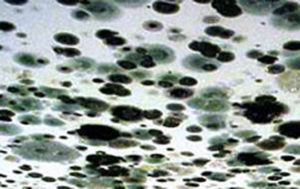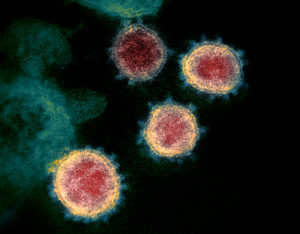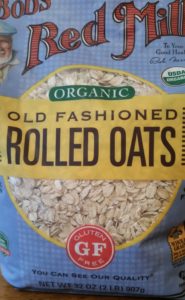 The relationship between mold and sinuses is something I've been thinking about lately. Why do so many people after prolonged exposure to ordinary mold eventually develop sinusitis? What is going on?
The relationship between mold and sinuses is something I've been thinking about lately. Why do so many people after prolonged exposure to ordinary mold eventually develop sinusitis? What is going on?
This is a really interesting question because we are exposed to mold (which is actually fungi) every single day just from ordinary breathing. Fungi are all around us - in the wind, in the air, in the soil, and we always have a little in our homes. For example, in the bathroom tub or shower area, in moldy food, or around the kitchen sink. These are common molds. And we're normally just fine.
In addition, we all have some fungal species living in and on our bodies, and they are part of the normal human microbiome (the community of bacteria, fungi, and viruses living on and in us). In fact, different species of fungi live in different parts of our body, even some species that we tend to think of as harmful, such as yeast and Aspergillus. In a healthy person, any potentially harmful microbes are kept in check by the other microbes in the microbiome so that they are living there harmlessly.
Yes, sometimes fungi can multiply to the point of doing harm (such as during a fungal skin infection, e.g. athlete's foot) or in an immunocompromised person, but normally fungal species live in a complex ecosystem in harmony with all our other millions of microbes.
Ordinary common molds can sometimes cause problems
But sometimes people get exposed to a lot of ordinary or common molds over a prolonged period of time. And this is where problems can develop if they breathe in a lot of the fungi.
 The most important thing to know is that fungi (mold) grow in wet or moist conditions. Especially where it is not well ventilated. For example, when air conditioning systems that are not draining properly result in mold growing in the unit and the ducts. Or a water leak from the roof causes mold to grow on a wall or ceiling right in your bedroom. In both cases people are breathing it in for prolonged periods.
The most important thing to know is that fungi (mold) grow in wet or moist conditions. Especially where it is not well ventilated. For example, when air conditioning systems that are not draining properly result in mold growing in the unit and the ducts. Or a water leak from the roof causes mold to grow on a wall or ceiling right in your bedroom. In both cases people are breathing it in for prolonged periods.
What kind of health problems can result? The health problems from common molds are generally of an inflammatory or allergic nature, such as respiratory symptoms, respiratory illnesses (sinus infections), asthma, allergic responses, immunological, and other inflammatory responses. [This is according to CDC (Centers for Disease Control and Prevention), WHO, and other major associations.]
But here's another thing - responses to large mold exposure vary, with some people having big responses (respiratory infections or asthma), some minor (perhaps drippy nose), and some no effects at all.
The good news is that more extreme health effects from mold exposure are very rare according to the CDC, the World Health organization, and some other health groups, with only some individual cases reported. Whew.
Looking back on my own history of sinus infections, it all makes perfect sense! After developing non-stop sinus infections years ago, I went to an ENT specialist who, after careful examination of my nasal passages, said that I was showing a massive inflammatory response, an allergic response. And only when I figure out what was causing the allergic response would I start to improve. Which turned out to be true.
[NOTE: This post is not going into the issue of mycotoxins (of fungi that release toxins), and of molds that take over houses making them uninhabitable, for example after floods.]
Deal With A Mold Problem As Soon As Possible
The CDC says don't bother with blood tests for mold - there aren't any. There are only tests that look at allergic responses to mold. And don't worry about what type of mold is in the house. Just clean it up, replace what needs replacing, make repairs, fix whatever needs fixing, etc. as soon as possible.
Once the mold problem is fixed and mold removed, the mold exposure is gone. And any health symptoms related to too much mold exposure health can finally improve.
 Final thoughts about mold and sinusitis: For a while in the 1990s it was thought that people with sinusitis all had fungal problems in the sinuses and sinusitis should be treated with antifungals. Nope. When genetic sequencing tests were developed, researchers discovered hundreds of microbial species in healthy and sick people - and they realized that we all had fungi as part of our microbiome.
Final thoughts about mold and sinusitis: For a while in the 1990s it was thought that people with sinusitis all had fungal problems in the sinuses and sinusitis should be treated with antifungals. Nope. When genetic sequencing tests were developed, researchers discovered hundreds of microbial species in healthy and sick people - and they realized that we all had fungi as part of our microbiome.
Which is why physicians now generally view sinusitis as an "inflammatory process", maybe due to an allergic response. Fungal sinusitis is considered one type of sinusitis, and only in a small minority of sinusitis cases.
 Indoor mold by window Credit: Wikipedia
Indoor mold by window Credit: Wikipedia
 Today while waiting in a line at the store, everyone wearing the required masks, the woman in front of me told me that the masks are useless and that there isn't good evidence that the coronavirus is spread through the air. Huh? Where did she get that idea? Of course there is airborne transmission of the virus!
Today while waiting in a line at the store, everyone wearing the required masks, the woman in front of me told me that the masks are useless and that there isn't good evidence that the coronavirus is spread through the air. Huh? Where did she get that idea? Of course there is airborne transmission of the virus! In case you're wondering: being outdoors dilutes and disperses the virus. If you are concerned about the virus spreading indoors - then open a window (to dilute and disperse the virus).
In case you're wondering: being outdoors dilutes and disperses the virus. If you are concerned about the virus spreading indoors - then open a window (to dilute and disperse the virus).
 Exercise is good for memory and the brain. University of Geneva researchers found that even one short bout of moderate or intense exercise improves memory and acquisition of new motor skills.
Exercise is good for memory and the brain. University of Geneva researchers found that even one short bout of moderate or intense exercise improves memory and acquisition of new motor skills. Looking for a reason to stop smoking? How about brain bleeds? A recent study found that cigarette smoking is linked to death from the extremely serious bleeding stroke called subarachnoid hemorrhage (SAH).
Looking for a reason to stop smoking? How about brain bleeds? A recent study found that cigarette smoking is linked to death from the extremely serious bleeding stroke called subarachnoid hemorrhage (SAH).  A recent study found that eating higher levels of foods with flavonoids (e.g. berries, apples, and tea) may lower the risk of later development of Alzheimer's disease and other age-related dementias.
A recent study found that eating higher levels of foods with flavonoids (e.g. berries, apples, and tea) may lower the risk of later development of Alzheimer's disease and other age-related dementias. We use so much plastic that we are now surrounded by plastic. But eventually all plastic degrades into tiny pieces called microplastics and nanoplastics. These tiny plastic pieces are found throughout the world, including in the
We use so much plastic that we are now surrounded by plastic. But eventually all plastic degrades into tiny pieces called microplastics and nanoplastics. These tiny plastic pieces are found throughout the world, including in the  The relationship between mold and sinuses is something I've been thinking about lately. Why do so many people after prolonged exposure to ordinary mold eventually develop sinusitis? What is going on?
The relationship between mold and sinuses is something I've been thinking about lately. Why do so many people after prolonged exposure to ordinary mold eventually develop sinusitis? What is going on? The most important thing to know is that fungi (mold) grow in wet or moist conditions. Especially where it is not well ventilated. For example, when air conditioning systems that are not draining properly result in mold growing in the unit and the ducts. Or a water leak from the roof causes mold to grow on a wall or ceiling right in your bedroom. In both cases people are breathing it in for prolonged periods.
The most important thing to know is that fungi (mold) grow in wet or moist conditions. Especially where it is not well ventilated. For example, when air conditioning systems that are not draining properly result in mold growing in the unit and the ducts. Or a water leak from the roof causes mold to grow on a wall or ceiling right in your bedroom. In both cases people are breathing it in for prolonged periods. Final thoughts about mold and sinusitis:
Final thoughts about mold and sinusitis: Achieve dramatically lower pesticide levels in your body in a few days! No need for "colonics" or "detox regimens". All one has to do is eat organic food to lower pesticide levels! And the more organic food in the diet, the better.
Achieve dramatically lower pesticide levels in your body in a few days! No need for "colonics" or "detox regimens". All one has to do is eat organic food to lower pesticide levels! And the more organic food in the diet, the better. Disappointing results from a large
Disappointing results from a large  Want to lose weight without counting calories? According to a recent
Want to lose weight without counting calories? According to a recent  What you eat is all important for health. A recent
What you eat is all important for health. A recent